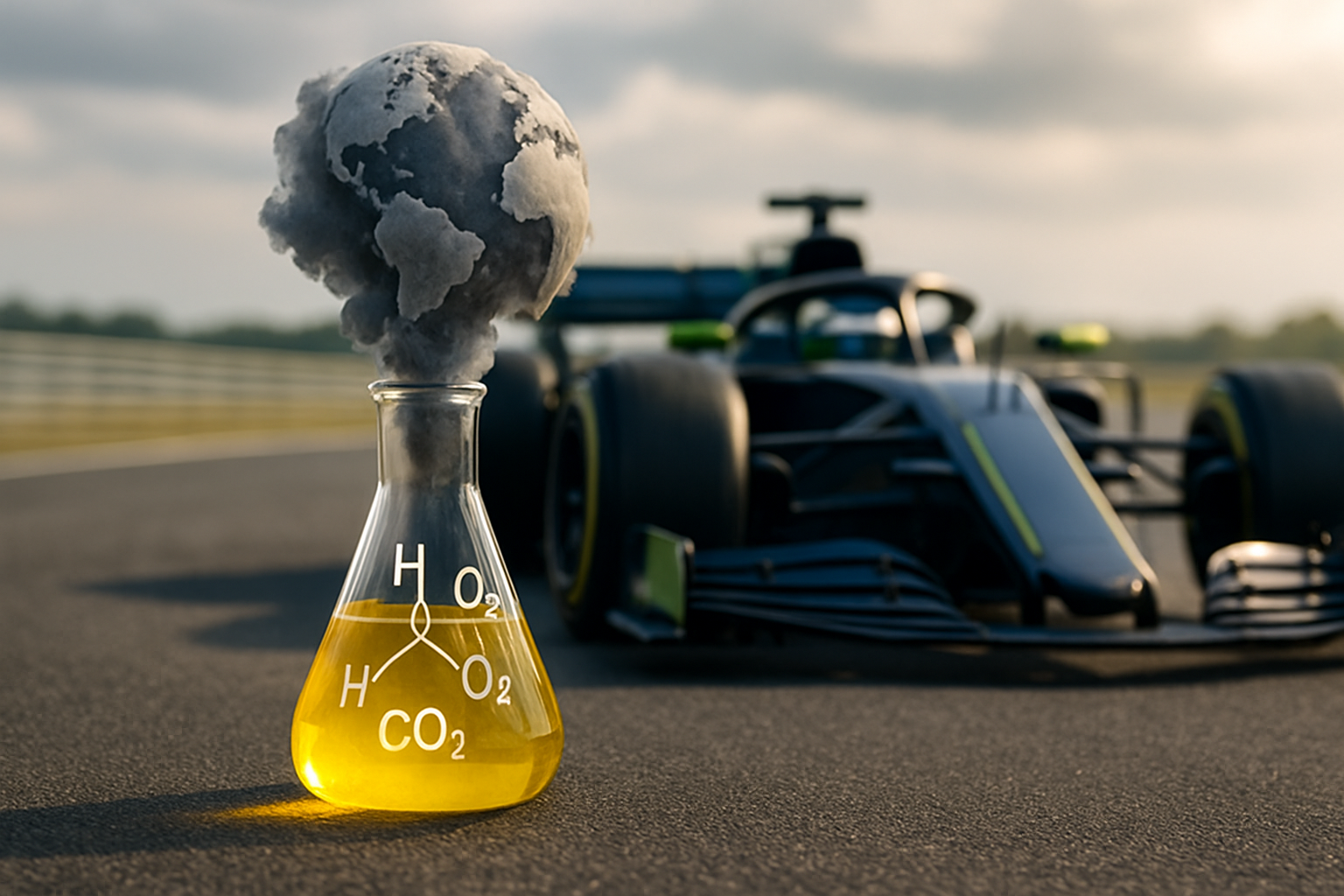Synthetic Fuels: Racing Towards a Greener Future
The roar of engines, the smell of burning rubber, and the thrill of speed – motorsports have long been synonymous with high-octane excitement. But as the world grapples with climate change, the racing industry faces a pivotal challenge: how to maintain the heart-pounding action while reducing its environmental impact. Enter synthetic fuels, a groundbreaking solution that could revolutionize not just racing, but the entire automotive landscape. This innovative technology promises to deliver the performance drivers crave while significantly cutting carbon emissions. But what exactly are synthetic fuels, and how could they reshape the future of motorsports and beyond?

A Promising Solution for Motorsports
For racing enthusiasts and teams, synthetic fuels offer a tantalizing proposition: the ability to continue using internal combustion engines while dramatically reducing their carbon footprint. Unlike the shift to electric vehicles, which requires entirely new powertrains and infrastructure, synthetic fuels can be used in existing engines with minimal modifications. This compatibility allows racing series to maintain the thunderous soundscapes and visceral experiences that fans love, while still making significant strides towards sustainability.
Performance on Par with Petroleum
One of the most exciting aspects of synthetic fuels is their potential to match or even exceed the performance of traditional petroleum-based fuels. Through precise molecular engineering, scientists can create fuels with specific characteristics tailored for high-performance applications. This level of customization could lead to increased power output, improved fuel efficiency, and even reduced engine wear. As a result, racing teams may find themselves not just meeting environmental targets, but also gaining a competitive edge on the track.
Challenges and Hurdles
Despite their promise, synthetic fuels face several obstacles on the road to widespread adoption. The primary challenge is cost – currently, producing synthetic fuels is significantly more expensive than refining traditional petroleum. Additionally, the energy-intensive production process requires vast amounts of renewable electricity to be truly carbon-neutral. Scaling up production to meet the demands of global motorsports, let alone the broader automotive industry, will require substantial investments in infrastructure and technology.
Beyond the Racetrack: Wider Implications
While motorsports may serve as the perfect testing ground for synthetic fuels, the implications of this technology extend far beyond the confines of racing circuits. The aviation industry, which faces unique challenges in electrification due to the weight of batteries, has shown keen interest in synthetic fuels as a potential solution for long-haul flights. Similarly, the shipping industry could benefit from a drop-in fuel that reduces emissions without requiring a complete overhaul of existing fleets.
The Road Ahead: Integrating Synthetic Fuels into Motorsports
As synthetic fuel technology continues to evolve, we can expect to see a gradual integration into various racing series. Formula 1, known for its cutting-edge innovations, has already announced plans to introduce synthetic fuels by 2026. Other motorsports organizations are likely to follow suit, potentially creating a ripple effect that accelerates development and drives down costs. This shift could usher in a new era of green motorsports, where high-performance racing and environmental responsibility go hand in hand.
A Balancing Act: Synthetic Fuels and Electrification
It’s important to note that synthetic fuels are not seen as a replacement for electrification, but rather as a complementary solution in the broader push for sustainable transportation. While electric vehicles continue to gain traction in everyday driving scenarios, synthetic fuels could play a crucial role in applications where battery power is less practical. This dual approach allows for a more nuanced and flexible transition away from fossil fuels, addressing the diverse needs of different vehicle types and use cases.
The Consumer Perspective: Will Synthetic Fuels Reach Our Driveways?
As synthetic fuels make inroads in motorsports and other specialized industries, many car enthusiasts wonder if and when this technology will become available for consumer vehicles. The prospect of being able to drive classic cars or high-performance vehicles with a clear conscience is undoubtedly appealing. However, widespread adoption in the consumer market will depend on factors such as production costs, government regulations, and the overall trajectory of vehicle electrification.
A New Chapter in Automotive Innovation
Synthetic fuels represent a fascinating intersection of chemistry, engineering, and environmental science. As the automotive world races towards a more sustainable future, this technology offers a unique path forward – one that preserves the essence of internal combustion while drastically reducing its environmental impact. While challenges remain, the potential benefits of synthetic fuels extend far beyond the racetrack, promising to reshape our relationship with transportation in the years to come. As we stand on the brink of this fuel revolution, one thing is clear: the journey towards sustainable mobility is far from over, and the next lap promises to be the most exciting yet.






